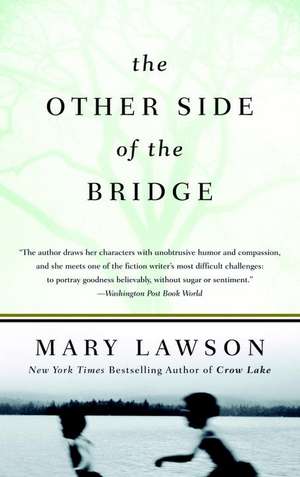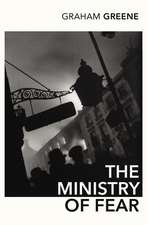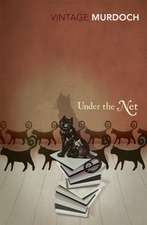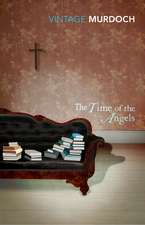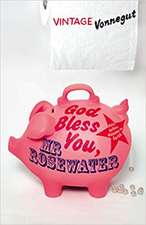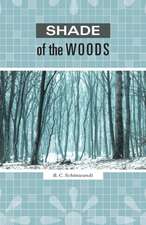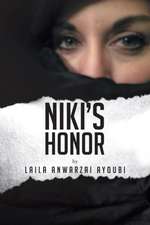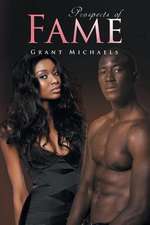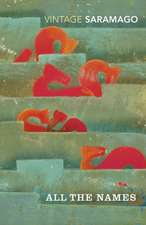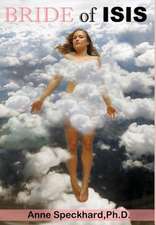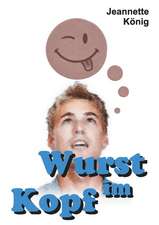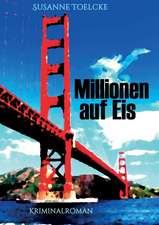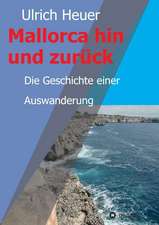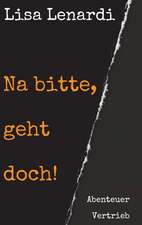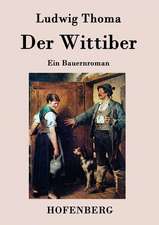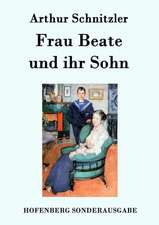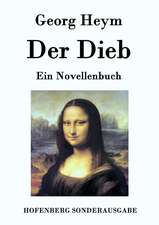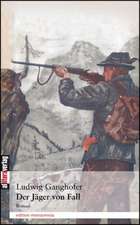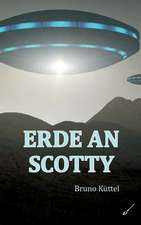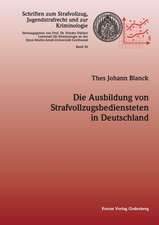The Other Side of the Bridge
Autor Mary Lawsonen Limba Engleză Paperback – 31 iul 2007
Two brothers, Arthur and Jake Dunn, are the sons of a farmer in the mid-1930s, when life is tough and another world war is looming. Arthur is reticent, solid, dutiful and set to inherit the farm and his father’s character; Jake is younger, attractive, mercurial and dangerous to know – the family misfit. When a beautiful young woman comes into the community, the fragile balance of sibling rivalry tips over the edge.
Then there is Ian, the family’s next generation, and far too sure he knows the difference between right and wrong. By now it is the fifties, and the world has changed – a little, but not enough.
These two generations in the small town of Struan, Ontario, are tragically interlocked, linked by fate and community but separated by a war which devours its young men – its unimaginable horror reaching right into the heart of this remote corner of an empire. With her astonishing ability to turn the ratchet of tension slowly and delicately, Lawson builds their story to a shocking climax. Taut with apprehension, surprising us with moments of tenderness and humour, The Other Side of the Bridge is a compelling, humane and vividly evoked novel with an irresistible emotional undertow.
Arthur found himself staring down at the knife embedded in his foot. There was a surreal split second before the blood started to well up and then up it came, dark and thick as syrup.
Arthur looked at Jake and saw that he was staring at the knife. His expression was one of surprise, and this was something that Arthur wondered about later too. Was Jake surprised because he had never considered the possibility that he might be a less than perfect shot? Did he have that much confidence in himself, that little self-doubt?
Or was he merely surprised at how easy it was to give in to an impulse, and carry through the thought which lay in your mind? Simply to do whatever you wanted to do, and damn the consequences.
–from The Other Side of the Bridge
From the Hardcover edition.
| Toate formatele și edițiile | Preț | Express |
|---|---|---|
| Paperback (2) | 59.61 lei 24-30 zile | +22.88 lei 5-11 zile |
| Vintage Publishing – 21 iun 2007 | 59.61 lei 24-30 zile | +22.88 lei 5-11 zile |
| Dial Press – 31 iul 2007 | 107.46 lei 3-5 săpt. |
Preț: 107.46 lei
Nou
Puncte Express: 161
Preț estimativ în valută:
20.57€ • 21.39$ • 16.98£
20.57€ • 21.39$ • 16.98£
Carte disponibilă
Livrare economică 24 martie-07 aprilie
Preluare comenzi: 021 569.72.76
Specificații
ISBN-13: 9780385340380
ISBN-10: 0385340389
Pagini: 296
Dimensiuni: 132 x 206 x 18 mm
Greutate: 0.25 kg
Editura: Dial Press
ISBN-10: 0385340389
Pagini: 296
Dimensiuni: 132 x 206 x 18 mm
Greutate: 0.25 kg
Editura: Dial Press
Notă biografică
MARY LAWSON was born and brought up in a small farming community in Ontario. She is the author ofCrow Lake, andThe Other Side of the Bridge, both international bestsellers.Crow Lakewas aNew York Timesbestseller and was chosen as a Book of the Year byThe New York TimesandThe Washington Post, among others.The Other Side of the Bridgewas longlisted for the Man Booker Prize. Her latest novel,Road Ends, was a national bestseller and finalist for the Folio Prize. Lawson lives in England but returns to Canada frequently.
Extras
Chapter One
FireFighters Battle BushFire
Lost Bear Hunter Located by Plane: In Bush 40 Hours
—Temiskaming Speaker, May 1957
On a small farm about two miles outside Struan there lived a beautiful woman. She was tall and willowy with a lot of fair hair that she drew back into a thick plait and tied with whatever came to hand—a bit of frayed ribbon, an elastic band, an old piece of string. On Sundays she rolled it into a shining ball at the nape of her neck and fastened it somehow so that it wouldn’t fall down during church. Her name was Laura Dunn. Laura, her own name, soft and beautiful like she was; Dunn, her husband’s name, solid and lumpen like her husband. Arthur Dunn was a farmer, a big, heavyset man with a neck at least twice the width of his wife’s, and to Ian, sitting with his parents three pews behind, he looked about as exciting as dishwater.
Ian had first noticed Laura Dunn when he was fourteen—she must have been around all his life but that was the year he became aware of her. She would have been about thirty at the time. She and Arthur had three children, or possibly four. Ian wasn’t sure—he’d never paid any attention to the children.
For a year he made do with watching her in church on Sundays—the Dunns came into town for church every Sunday without fail. Then, when he was fifteen, Ian’s father said that he should get a job working Saturdays and holidays and start saving up for his further education, the theory being that you appreciated things more if you’d helped to pay for them yourself. Ian couldn’t recall anyone asking him if he wanted more education—it was another of the many assumptions people made about his life—but in this particular case he didn’t argue. He got on his bike and cycled out to the Dunns’ farm.
The farm was an oddity in the Struan area because Arthur Dunn still worked his land with horses. It wasn’t because he couldn’t afford a tractor—the farm was prosperous enough—and it wasn’t through any religious convictions like the Mennonites farther south. When asked about it Arthur would study the ground thoughtfully, as if the question had never occurred to him before, and then say that he guessed he liked horses. No one bought that explanation, though. They all believed that Arthur had been put off tractors years earlier, when his father got one and drove it down to the lower forty, where he rolled it into a ditch and killed himself, all within two hours of its arrival on the farm. Even the youngest and least intelligent of the plow horses would have known better than to fall into a ditch. The day after the funeral Arthur got rid of the tractor and harnessed up the team again and he’d been plodding along behind them ever since.
He was out in the fields when Ian cycled up to the farm. Ian saw him, off in the distance, being towed along by two great heavy-footed animals like a picture postcard of a time gone by. Ian leaned his bike up against the pump, which he guessed would only be used to fill the water trough—all but the most remote farms in the area had running water, and electricity too; they’d been connected up to the grid two years ago, when the power lines were run in for the sawmill.
Ian picked his way between the chickens to the back door. There was a front door on the other side of the house, but he figured no one ever used it. It would lead into the sitting room, where probably no one ever sat, whereas the back door led into the kitchen, which was where life would be lived. He could hear Laura Dunn talking as he climbed the three steps to the door. The inner door was open, letting the sound of voices out, but the screen door was closed, making it difficult to see in. She was scolding one of the kids, by the sound of it, though Ian couldn’t make out the words because a baby was crying. Her voice wasn’t sharp and sarcastic, as Ian’s mother’s voice tended to be when she was annoyed about something. It was exasperated, but still gentle and light, or so it seemed to Ian.
There was a lull in the baby’s crying and Ian, standing on the top step with his hand lifted, ready to knock on the door, heard Laura Dunn say, “Well for goodness’ sake, Carter, couldn’t you share it? Couldn’t you let her have a turn?” And a boy’s voice said, “She never shares hers!” and a little girl’s voice wailed, “I do so!” and the baby started to howl again. There was the sound of a chair being scuffed along the floor and then the screen door was flung open, nearly knocking Ian off the step, and a boy charged out. He gave Ian a startled, angry glance before jumping off the steps and disappearing around the side of the house. He looked about twelve years old and had the sort of face, Ian thought, that made you want to hit him. The sullen, sulky face of a kid who thinks the world’s against him.
The screen door slammed closed again and Laura Dunn appeared behind it. She gave a start when she saw Ian standing there and said, “Oh! Oh . . . hello! It’s Ian, isn’t it? Dr. Christopherson’s son?”
“Yes,” Ian said. “Um, yes . . . um, I’ve come to talk to Mr. Dunn . . . about a job. I wondered if he’d be taking on anyone this summer. I mean, full-time this summer, but maybe Saturdays right away, and then full-time once the holidays start.”
He felt himself flushing. He was gabbling, because she was so near, just inches away behind the screen door, and she was looking at him, directly and only at him, with those wonderful soft eyes, eyes that he’d noticed always seemed shadowed, as if they contained deep, unfathomable mysteries, or—the possibility occurred to him now, what with the crying of the baby and the behavior of the kids—as if she were tired all the time.
“Oh,” she said. “Oh, well yes, I’m sure he’d be glad of some help. Just a minute, Ian. . . . I’ll come out. Just a minute.”
She disappeared. Ian heard her say something to somebody and then she reappeared with a baby in her arms. A little girl was behind her, but she shrank back when she saw Ian standing there. He moved down off the steps and Laura came out, bouncing the baby gently up and down on her hip. The baby was fat and sexless, like all babies, and had round, unconvincing tears rolling down its cheeks. It and Ian looked at each other and the baby gave a sort of snort, as if it didn’t think much of what it saw, and put its thumb in its mouth.
“There, now,” Laura said, brushing the top of its head with her lips. “That’s better. This is Ian. Say hello to Ian.”
“Hi,” Ian said. He smiled warily at the baby. It stared back and then curled up and buried its face in the folds of Laura’s dress, its free hand clutching possessively at her breast. Ian quickly looked down at his feet.
“The thing is, you’ll really need to speak to Arthur,” Laura was saying. “He’s plowing at the moment.” She nodded in the direction of the picture-postcard view of her husband. “If you’d like to go out and have a word with him . . . just along that track there.” She looked doubtfully at Ian’s bike. “Only I think you’d be better to walk. The horses cut up the path a bit. . . . But I’m sure he’ll be pleased—it’s so hard to get help. Men nowadays don’t know how to deal with horses, you see.” She smiled at him. “But maybe you like them. Is that why you’ve come?”
“Well, sort of,” Ian said. He hadn’t given the work of the farm—the actual job he was applying for—a thought. Arthur Dunn could have hitched his plow to a moose, for all he cared. At the moment all his attention was taken up with trying not to look at the baby, which had now, unbelievably, wormed its hand inside its mother’s dress and was tugging at what it found in there, all the while making fretful smacking noises with its lips.
Laura gently disengaged the small hand. “Shush,” she said to the baby. She smiled at Ian again, seeming not to notice his embarrassment. “Come back and let me know what he says, all right?”
Ian nodded, and turned, his mind filled to the brim with the nearness of her, her overwhelming presence, and made his way down the muddy track to where Arthur Dunn was plodding up and down the furrows behind his horses. Arthur Dunn, so solid, so dull, so obviously unworthy of such a wife. Arthur Dunn, who, when he saw Ian approaching, halted his team and came across the field to meet him, and said yeah, sure, he could use a hand, and would Ian like to start this coming Saturday?
Ian’s grandfather had been Struan’s first resident doctor, and when he’d answered the “Doctor Wanted” advertisement they’d put in a Toronto medical journal, the grateful townspeople built him a house just a block west of Main Street, a couple of hundred yards from the lake. It was a handsome wooden structure, white-painted and green-trimmed, with lawns on all four sides and a white picket fence surrounding the lawns. In the early days there was a neat white stable for the horse and buggy twenty yards from the house. Later the first Dr. Christopherson acquired a Buick Roadster, which became as much a part of him as his old black leather medical bag, and a garage was added beside the stable. He kept the horse for use in winter, when the back roads around Struan were impassable by anything except a sled. His son, the present Dr. Christopherson (who also drove a Buick, though his was the sedan), was sometimes heard lamenting the absence of the sled even now, given the state of the town’s one and only snowplow.
As much as anything else, the building of the house had been a statement of faith on the part of the people of Struan. Until then they’d had to go to New Liskeard if they required a doctor, and if you needed medical help badly enough to make the journey to New Liskeard, the odds were that you were in no state to make the journey. Getting their own doctor was a sign that the town had arrived. In the brief interval between applying the final coat of paint and the arrival of Dr. Christopherson, the people of Struan found excuses to walk past the house and admire it. You looked at that house and you thought, this is no fly-by-night northern settlement sprung up around a sawmill; any town that can afford to build its doctor a house like this is here to stay.
Ian was aware of most of this personal and civic history, and as far as he was concerned his grandfather must have been raving mad. Imagine voluntarily leaving a city like Toronto to come to a hick town like Struan. And though you could excuse his grandfather’s mistake on the grounds of ignorance—he couldn’t have had any real idea what he was coming to—there was no such excuse for Ian’s father. He had been born and brought up in Struan, and had then escaped, but after living in Toronto for almost a decade while he took his medical degree and worked in the Sick Children’s Hospital, he had returned to Struan to take over his father’s practice. Ian couldn’t understand it. Why would anyone do such a thing? What was Struan, apart from a sawmill? A sorry bunch of stores lined up along a dusty main street, with nothing in them anyone would want to buy. A couple of churches. The Hudson’s Bay Company. A post office. A bank. Harper’s Restaurant. Ben’s Bar. A hotel—because, incredibly, some people chose to come to Struan for their holidays—and a little clutch of holiday cottages down by the lake. The lake was the town’s only asset, in Ian’s opinion. It was large—fifty miles long, north to south, and almost twenty miles across—and deep, and very clear, surrounded on all sides by low granite hills studded with spruce and wind-blasted pines. Its shore was so ragged with bays and inlets and islands that you could spend your life exploring and never find half of them. When Ian dreamed of leaving the town, which he did all the time nowadays, the thought of leaving the lake was the only thing that bothered him. The lake and Laura Dunn.
He parked his bike up against the veranda of the house, climbed the wide wooden steps to the porch, and went in. The door to his father’s office was closed and he could hear voices behind it, but the waiting room was empty, so Ian sat down on one of the dozen or so battered old chairs lining the walls and flicked through a two-year-old copy of Reader’s Digest while he thought about Laura Dunn. The wavy strands of her hair escaped from their elastic band and drifted around her face. Those shadowed eyes. Her breasts. He’d noticed—he couldn’t help noticing—that on the front of her dress there had been two wet circles where her breasts had leaked milk.
The door to the office opened and Ted Pickett, owner of Pickett’s Hardware, came out with his arm in a sling. He nodded at Ian and grimaced and Ian grimaced back. Patients entered the house by a side door but both the office and the waiting room were right off the hall, so all his life he’d been used to seeing people going in and out in varying degrees of anguish, and he’d got his responses down pat.
“He doesn’t think it’s broken,” Mr. Pickett said.
“That’s lucky,” Ian said.
“He thinks it’s just sprained. Hurts like hell though.”
Ian nodded sympathetically. “Did you fall off the ladder?” There was a ladder on wheels in the hardware store that Mr. Pickett scooted around on, reaching for nails or nuts or brackets or hinges, an accident waiting to happen.
“Yeah,” Mr. Pickett said, looking surprised. “How did you know?”
“I just . . . kind of . . . wondered,” Ian said politely.
When Mr. Pickett left he knocked on his father’s door and went in.
“I’ve got a job,” he said. His father had his back to him. He was rolling bandages and placing them neatly back in their drawer. His desk was littered with papers—patients’ notes, medical journals, bills—but the tools of his trade were always properly put away.
“That was quick,” he said.
“Arthur Dunn’s farm,” Ian said. “He said I could start Saturday.”
His father turned around and took off his glasses and blinked at him. “Arthur Dunn’s farm?”
“Yes, you know . . . doing . . . farm work.”
“Farm work.” His father nodded vaguely, as if trying to imagine it.
“I thought I’d like something outdoors,” Ian said.
Dr. Christopherson put his glasses back on and looked out the window. It had just started to rain. “Yes,” he said doubtfully. “Well . . . if that’s what you want. Arthur’s a nice fellow.” He looked dubiously at Ian. “It’ll be hard work, you know.”
“I know,” Ian said.
“Did you see the horses?”
“Yes.”
“Magnificent animals.”
“Yes,” Ian said, though he had barely noticed them. He and his father smiled at each other, glad to be in agreement. They were usually in agreement, unlike Ian and his mother.
Next he went and told his mother, who was watching I Love Lucy in the living room. Television had finally—finally!—reached Struan a couple of months earlier, proof, if more were needed, of how backward things were up here. Ian’s mother had disapproved of it at first, but now she watched it more than he did. In fact, just lately she seemed to watch it all the time. She was supposed to be in with his father—she was his nurse—but apart from the odd emergency, Ian hadn’t seen her in the office for weeks.
“Mum?” he said, standing in the doorway. She was in one of her absent moods—he could tell even though he couldn’t see her face. She had two moods nowadays, absent or annoyed, and whichever one she was in he invariably found he preferred the other.
“Mum?” he said again. She turned her head a few degrees, not taking her eyes off the screen.
“I’ve got a job,” Ian said.
She turned a little more and met his eyes, and he saw the glazed look fade as she focused on him.
“What was that?” she said.
“I said I’ve got a job.”
“Oh,” she said. She smiled at him. “That’s good.” She turned back to the television. Ian waited a minute but there was no further response, so he went into the kitchen to get a reaction from Mrs. Tuttle instead. She was breading chicken pieces for supper, dipping each piece in a bowl of beaten egg and then slapping it back and forth in a dish of bread crumbs.
“I’ve got a job, Mrs. Tuttle,” Ian said.
“Have you now?” she said, placing a breaded breast down on the baking tray and taking a pale, slippery-looking chicken leg from the hacked-up carcass on the chopping board. “That’s exciting. What is it?”
“Helping Mr. Dunn on his farm.”
She paused, then turned her head to look at him. Her glasses were splattered with the day’s cooking—a dusting of flour from the tea biscuits, a little smear of butter, a scattering of crumbs—even what looked to be a shred of carrot peel. “Goodness!” she said, ducking her head in order to look over the top of them. “Whatever did you want a job like that for?” Which was what he’d expected her to say, and therefore satisfying in its way, so he smiled at her and left.
His mother was still in front of the television when he passed the living room door on his way upstairs; I Love Lucy had finished and she was watching a program in French. It struck Ian as strange, because she didn’t speak French. He wondered if anyone else’s mother watched television during the day. It was hard to know. The mothers of most of his friends were farmers’ wives and didn’t have time to sit down, much less watch TV. But his mother had never been like other people’s mothers. She didn’t come from the north—she was an outsider, from Vancouver originally. She wore smart shoes with heels, even around the house, and skirts with sweaters that matched, and had her hair set in loose waves instead of tight little corkscrews like the mothers of his friends. In the evenings, she and Ian and his father ate formally in the dining room, instead of at the kitchen table. They used napkins–proper white linen ones, washed and starched and ironed by Mrs. Tuttle every Monday. Ian suspected that no one else in the whole of Struan would have the first idea what to do with a napkin.
From the Hardcover edition.
FireFighters Battle BushFire
Lost Bear Hunter Located by Plane: In Bush 40 Hours
—Temiskaming Speaker, May 1957
On a small farm about two miles outside Struan there lived a beautiful woman. She was tall and willowy with a lot of fair hair that she drew back into a thick plait and tied with whatever came to hand—a bit of frayed ribbon, an elastic band, an old piece of string. On Sundays she rolled it into a shining ball at the nape of her neck and fastened it somehow so that it wouldn’t fall down during church. Her name was Laura Dunn. Laura, her own name, soft and beautiful like she was; Dunn, her husband’s name, solid and lumpen like her husband. Arthur Dunn was a farmer, a big, heavyset man with a neck at least twice the width of his wife’s, and to Ian, sitting with his parents three pews behind, he looked about as exciting as dishwater.
Ian had first noticed Laura Dunn when he was fourteen—she must have been around all his life but that was the year he became aware of her. She would have been about thirty at the time. She and Arthur had three children, or possibly four. Ian wasn’t sure—he’d never paid any attention to the children.
For a year he made do with watching her in church on Sundays—the Dunns came into town for church every Sunday without fail. Then, when he was fifteen, Ian’s father said that he should get a job working Saturdays and holidays and start saving up for his further education, the theory being that you appreciated things more if you’d helped to pay for them yourself. Ian couldn’t recall anyone asking him if he wanted more education—it was another of the many assumptions people made about his life—but in this particular case he didn’t argue. He got on his bike and cycled out to the Dunns’ farm.
The farm was an oddity in the Struan area because Arthur Dunn still worked his land with horses. It wasn’t because he couldn’t afford a tractor—the farm was prosperous enough—and it wasn’t through any religious convictions like the Mennonites farther south. When asked about it Arthur would study the ground thoughtfully, as if the question had never occurred to him before, and then say that he guessed he liked horses. No one bought that explanation, though. They all believed that Arthur had been put off tractors years earlier, when his father got one and drove it down to the lower forty, where he rolled it into a ditch and killed himself, all within two hours of its arrival on the farm. Even the youngest and least intelligent of the plow horses would have known better than to fall into a ditch. The day after the funeral Arthur got rid of the tractor and harnessed up the team again and he’d been plodding along behind them ever since.
He was out in the fields when Ian cycled up to the farm. Ian saw him, off in the distance, being towed along by two great heavy-footed animals like a picture postcard of a time gone by. Ian leaned his bike up against the pump, which he guessed would only be used to fill the water trough—all but the most remote farms in the area had running water, and electricity too; they’d been connected up to the grid two years ago, when the power lines were run in for the sawmill.
Ian picked his way between the chickens to the back door. There was a front door on the other side of the house, but he figured no one ever used it. It would lead into the sitting room, where probably no one ever sat, whereas the back door led into the kitchen, which was where life would be lived. He could hear Laura Dunn talking as he climbed the three steps to the door. The inner door was open, letting the sound of voices out, but the screen door was closed, making it difficult to see in. She was scolding one of the kids, by the sound of it, though Ian couldn’t make out the words because a baby was crying. Her voice wasn’t sharp and sarcastic, as Ian’s mother’s voice tended to be when she was annoyed about something. It was exasperated, but still gentle and light, or so it seemed to Ian.
There was a lull in the baby’s crying and Ian, standing on the top step with his hand lifted, ready to knock on the door, heard Laura Dunn say, “Well for goodness’ sake, Carter, couldn’t you share it? Couldn’t you let her have a turn?” And a boy’s voice said, “She never shares hers!” and a little girl’s voice wailed, “I do so!” and the baby started to howl again. There was the sound of a chair being scuffed along the floor and then the screen door was flung open, nearly knocking Ian off the step, and a boy charged out. He gave Ian a startled, angry glance before jumping off the steps and disappearing around the side of the house. He looked about twelve years old and had the sort of face, Ian thought, that made you want to hit him. The sullen, sulky face of a kid who thinks the world’s against him.
The screen door slammed closed again and Laura Dunn appeared behind it. She gave a start when she saw Ian standing there and said, “Oh! Oh . . . hello! It’s Ian, isn’t it? Dr. Christopherson’s son?”
“Yes,” Ian said. “Um, yes . . . um, I’ve come to talk to Mr. Dunn . . . about a job. I wondered if he’d be taking on anyone this summer. I mean, full-time this summer, but maybe Saturdays right away, and then full-time once the holidays start.”
He felt himself flushing. He was gabbling, because she was so near, just inches away behind the screen door, and she was looking at him, directly and only at him, with those wonderful soft eyes, eyes that he’d noticed always seemed shadowed, as if they contained deep, unfathomable mysteries, or—the possibility occurred to him now, what with the crying of the baby and the behavior of the kids—as if she were tired all the time.
“Oh,” she said. “Oh, well yes, I’m sure he’d be glad of some help. Just a minute, Ian. . . . I’ll come out. Just a minute.”
She disappeared. Ian heard her say something to somebody and then she reappeared with a baby in her arms. A little girl was behind her, but she shrank back when she saw Ian standing there. He moved down off the steps and Laura came out, bouncing the baby gently up and down on her hip. The baby was fat and sexless, like all babies, and had round, unconvincing tears rolling down its cheeks. It and Ian looked at each other and the baby gave a sort of snort, as if it didn’t think much of what it saw, and put its thumb in its mouth.
“There, now,” Laura said, brushing the top of its head with her lips. “That’s better. This is Ian. Say hello to Ian.”
“Hi,” Ian said. He smiled warily at the baby. It stared back and then curled up and buried its face in the folds of Laura’s dress, its free hand clutching possessively at her breast. Ian quickly looked down at his feet.
“The thing is, you’ll really need to speak to Arthur,” Laura was saying. “He’s plowing at the moment.” She nodded in the direction of the picture-postcard view of her husband. “If you’d like to go out and have a word with him . . . just along that track there.” She looked doubtfully at Ian’s bike. “Only I think you’d be better to walk. The horses cut up the path a bit. . . . But I’m sure he’ll be pleased—it’s so hard to get help. Men nowadays don’t know how to deal with horses, you see.” She smiled at him. “But maybe you like them. Is that why you’ve come?”
“Well, sort of,” Ian said. He hadn’t given the work of the farm—the actual job he was applying for—a thought. Arthur Dunn could have hitched his plow to a moose, for all he cared. At the moment all his attention was taken up with trying not to look at the baby, which had now, unbelievably, wormed its hand inside its mother’s dress and was tugging at what it found in there, all the while making fretful smacking noises with its lips.
Laura gently disengaged the small hand. “Shush,” she said to the baby. She smiled at Ian again, seeming not to notice his embarrassment. “Come back and let me know what he says, all right?”
Ian nodded, and turned, his mind filled to the brim with the nearness of her, her overwhelming presence, and made his way down the muddy track to where Arthur Dunn was plodding up and down the furrows behind his horses. Arthur Dunn, so solid, so dull, so obviously unworthy of such a wife. Arthur Dunn, who, when he saw Ian approaching, halted his team and came across the field to meet him, and said yeah, sure, he could use a hand, and would Ian like to start this coming Saturday?
Ian’s grandfather had been Struan’s first resident doctor, and when he’d answered the “Doctor Wanted” advertisement they’d put in a Toronto medical journal, the grateful townspeople built him a house just a block west of Main Street, a couple of hundred yards from the lake. It was a handsome wooden structure, white-painted and green-trimmed, with lawns on all four sides and a white picket fence surrounding the lawns. In the early days there was a neat white stable for the horse and buggy twenty yards from the house. Later the first Dr. Christopherson acquired a Buick Roadster, which became as much a part of him as his old black leather medical bag, and a garage was added beside the stable. He kept the horse for use in winter, when the back roads around Struan were impassable by anything except a sled. His son, the present Dr. Christopherson (who also drove a Buick, though his was the sedan), was sometimes heard lamenting the absence of the sled even now, given the state of the town’s one and only snowplow.
As much as anything else, the building of the house had been a statement of faith on the part of the people of Struan. Until then they’d had to go to New Liskeard if they required a doctor, and if you needed medical help badly enough to make the journey to New Liskeard, the odds were that you were in no state to make the journey. Getting their own doctor was a sign that the town had arrived. In the brief interval between applying the final coat of paint and the arrival of Dr. Christopherson, the people of Struan found excuses to walk past the house and admire it. You looked at that house and you thought, this is no fly-by-night northern settlement sprung up around a sawmill; any town that can afford to build its doctor a house like this is here to stay.
Ian was aware of most of this personal and civic history, and as far as he was concerned his grandfather must have been raving mad. Imagine voluntarily leaving a city like Toronto to come to a hick town like Struan. And though you could excuse his grandfather’s mistake on the grounds of ignorance—he couldn’t have had any real idea what he was coming to—there was no such excuse for Ian’s father. He had been born and brought up in Struan, and had then escaped, but after living in Toronto for almost a decade while he took his medical degree and worked in the Sick Children’s Hospital, he had returned to Struan to take over his father’s practice. Ian couldn’t understand it. Why would anyone do such a thing? What was Struan, apart from a sawmill? A sorry bunch of stores lined up along a dusty main street, with nothing in them anyone would want to buy. A couple of churches. The Hudson’s Bay Company. A post office. A bank. Harper’s Restaurant. Ben’s Bar. A hotel—because, incredibly, some people chose to come to Struan for their holidays—and a little clutch of holiday cottages down by the lake. The lake was the town’s only asset, in Ian’s opinion. It was large—fifty miles long, north to south, and almost twenty miles across—and deep, and very clear, surrounded on all sides by low granite hills studded with spruce and wind-blasted pines. Its shore was so ragged with bays and inlets and islands that you could spend your life exploring and never find half of them. When Ian dreamed of leaving the town, which he did all the time nowadays, the thought of leaving the lake was the only thing that bothered him. The lake and Laura Dunn.
He parked his bike up against the veranda of the house, climbed the wide wooden steps to the porch, and went in. The door to his father’s office was closed and he could hear voices behind it, but the waiting room was empty, so Ian sat down on one of the dozen or so battered old chairs lining the walls and flicked through a two-year-old copy of Reader’s Digest while he thought about Laura Dunn. The wavy strands of her hair escaped from their elastic band and drifted around her face. Those shadowed eyes. Her breasts. He’d noticed—he couldn’t help noticing—that on the front of her dress there had been two wet circles where her breasts had leaked milk.
The door to the office opened and Ted Pickett, owner of Pickett’s Hardware, came out with his arm in a sling. He nodded at Ian and grimaced and Ian grimaced back. Patients entered the house by a side door but both the office and the waiting room were right off the hall, so all his life he’d been used to seeing people going in and out in varying degrees of anguish, and he’d got his responses down pat.
“He doesn’t think it’s broken,” Mr. Pickett said.
“That’s lucky,” Ian said.
“He thinks it’s just sprained. Hurts like hell though.”
Ian nodded sympathetically. “Did you fall off the ladder?” There was a ladder on wheels in the hardware store that Mr. Pickett scooted around on, reaching for nails or nuts or brackets or hinges, an accident waiting to happen.
“Yeah,” Mr. Pickett said, looking surprised. “How did you know?”
“I just . . . kind of . . . wondered,” Ian said politely.
When Mr. Pickett left he knocked on his father’s door and went in.
“I’ve got a job,” he said. His father had his back to him. He was rolling bandages and placing them neatly back in their drawer. His desk was littered with papers—patients’ notes, medical journals, bills—but the tools of his trade were always properly put away.
“That was quick,” he said.
“Arthur Dunn’s farm,” Ian said. “He said I could start Saturday.”
His father turned around and took off his glasses and blinked at him. “Arthur Dunn’s farm?”
“Yes, you know . . . doing . . . farm work.”
“Farm work.” His father nodded vaguely, as if trying to imagine it.
“I thought I’d like something outdoors,” Ian said.
Dr. Christopherson put his glasses back on and looked out the window. It had just started to rain. “Yes,” he said doubtfully. “Well . . . if that’s what you want. Arthur’s a nice fellow.” He looked dubiously at Ian. “It’ll be hard work, you know.”
“I know,” Ian said.
“Did you see the horses?”
“Yes.”
“Magnificent animals.”
“Yes,” Ian said, though he had barely noticed them. He and his father smiled at each other, glad to be in agreement. They were usually in agreement, unlike Ian and his mother.
Next he went and told his mother, who was watching I Love Lucy in the living room. Television had finally—finally!—reached Struan a couple of months earlier, proof, if more were needed, of how backward things were up here. Ian’s mother had disapproved of it at first, but now she watched it more than he did. In fact, just lately she seemed to watch it all the time. She was supposed to be in with his father—she was his nurse—but apart from the odd emergency, Ian hadn’t seen her in the office for weeks.
“Mum?” he said, standing in the doorway. She was in one of her absent moods—he could tell even though he couldn’t see her face. She had two moods nowadays, absent or annoyed, and whichever one she was in he invariably found he preferred the other.
“Mum?” he said again. She turned her head a few degrees, not taking her eyes off the screen.
“I’ve got a job,” Ian said.
She turned a little more and met his eyes, and he saw the glazed look fade as she focused on him.
“What was that?” she said.
“I said I’ve got a job.”
“Oh,” she said. She smiled at him. “That’s good.” She turned back to the television. Ian waited a minute but there was no further response, so he went into the kitchen to get a reaction from Mrs. Tuttle instead. She was breading chicken pieces for supper, dipping each piece in a bowl of beaten egg and then slapping it back and forth in a dish of bread crumbs.
“I’ve got a job, Mrs. Tuttle,” Ian said.
“Have you now?” she said, placing a breaded breast down on the baking tray and taking a pale, slippery-looking chicken leg from the hacked-up carcass on the chopping board. “That’s exciting. What is it?”
“Helping Mr. Dunn on his farm.”
She paused, then turned her head to look at him. Her glasses were splattered with the day’s cooking—a dusting of flour from the tea biscuits, a little smear of butter, a scattering of crumbs—even what looked to be a shred of carrot peel. “Goodness!” she said, ducking her head in order to look over the top of them. “Whatever did you want a job like that for?” Which was what he’d expected her to say, and therefore satisfying in its way, so he smiled at her and left.
His mother was still in front of the television when he passed the living room door on his way upstairs; I Love Lucy had finished and she was watching a program in French. It struck Ian as strange, because she didn’t speak French. He wondered if anyone else’s mother watched television during the day. It was hard to know. The mothers of most of his friends were farmers’ wives and didn’t have time to sit down, much less watch TV. But his mother had never been like other people’s mothers. She didn’t come from the north—she was an outsider, from Vancouver originally. She wore smart shoes with heels, even around the house, and skirts with sweaters that matched, and had her hair set in loose waves instead of tight little corkscrews like the mothers of his friends. In the evenings, she and Ian and his father ate formally in the dining room, instead of at the kitchen table. They used napkins–proper white linen ones, washed and starched and ironed by Mrs. Tuttle every Monday. Ian suspected that no one else in the whole of Struan would have the first idea what to do with a napkin.
From the Hardcover edition.
Recenzii
“Lawson’s gifts are enormous, especially her ability to write a literary work in a popular style. Her dialogue has perfect pitch, yet I’ve never read anyone better at articulating silence. Best of all, Lawson creates the most quotable images in Canadian literature.” —Toronto Star
“I could not put it down, but perhaps better to say that I could not let it go or that it would not let me go . . . Lawson transported me into a place that I know does not exist by taking me deep down into the story of a family whose fate is inexorable and universal. Her reality became mine.” —Globe and Mail
“One of the most eagerly awaited books of the autumn season. . . . The prologue draws you in, as does the novel, which is consistently well-written, involving and enjoyable to read. . . . Achingly real, known, [Arthur’s] inner life, with all its shifts in understanding, emotion, perception and conflicted impulses, is rendered with compelling force in concise, supple prose.” —Ottawa Citizen
“[Lawson] returns to several of the themes that marked her brilliantly successful first novel, Crow Lake. . . . Lawson’s cornucopia of novelistic gifts, even more bounteously on display in her second book, includes handsome, satisfying sentences, vivid descriptions of physical work and landscape and an almost fiendish efficiency in building the feeling that something very bad is about to happen.” —National Post
“An accomplished successor to [Crow Lake]. . . . With her cast of engaging characters, Lawson subtly but surely builds the dramatic tension toward a climax that changes the lives of both the Dunn and Christopherson families. Lawson’s story is a coming-of-age tale for two generations of young men, a community and a country.” —Quill & Quire
“There’s something timid yet masterful in Lawson’s writing. She neither wastes nor wallows. Her characters do not so much develop as blossom into themselves, one petal after another. . . . This is a book you will be driven to share with friends.” —Gazette (Montreal)
“A devastating story . . . about pushing fate and dealing with the consequences. The main characters of Arthur and Ian are expertly drawn.” —London Free Press
From the Hardcover edition.
“I could not put it down, but perhaps better to say that I could not let it go or that it would not let me go . . . Lawson transported me into a place that I know does not exist by taking me deep down into the story of a family whose fate is inexorable and universal. Her reality became mine.” —Globe and Mail
“One of the most eagerly awaited books of the autumn season. . . . The prologue draws you in, as does the novel, which is consistently well-written, involving and enjoyable to read. . . . Achingly real, known, [Arthur’s] inner life, with all its shifts in understanding, emotion, perception and conflicted impulses, is rendered with compelling force in concise, supple prose.” —Ottawa Citizen
“[Lawson] returns to several of the themes that marked her brilliantly successful first novel, Crow Lake. . . . Lawson’s cornucopia of novelistic gifts, even more bounteously on display in her second book, includes handsome, satisfying sentences, vivid descriptions of physical work and landscape and an almost fiendish efficiency in building the feeling that something very bad is about to happen.” —National Post
“An accomplished successor to [Crow Lake]. . . . With her cast of engaging characters, Lawson subtly but surely builds the dramatic tension toward a climax that changes the lives of both the Dunn and Christopherson families. Lawson’s story is a coming-of-age tale for two generations of young men, a community and a country.” —Quill & Quire
“There’s something timid yet masterful in Lawson’s writing. She neither wastes nor wallows. Her characters do not so much develop as blossom into themselves, one petal after another. . . . This is a book you will be driven to share with friends.” —Gazette (Montreal)
“A devastating story . . . about pushing fate and dealing with the consequences. The main characters of Arthur and Ian are expertly drawn.” —London Free Press
From the Hardcover edition.
Descriere
This mesmerizing novel of jealously, rivalry, and the dangerous power of obsession, chronicles two generations in a small town in Ontario, which are tragically linked by fate and community but separated by a war which devours its young men--its unimaginable horror reaching right into the heart of this remote corner of an empire.
